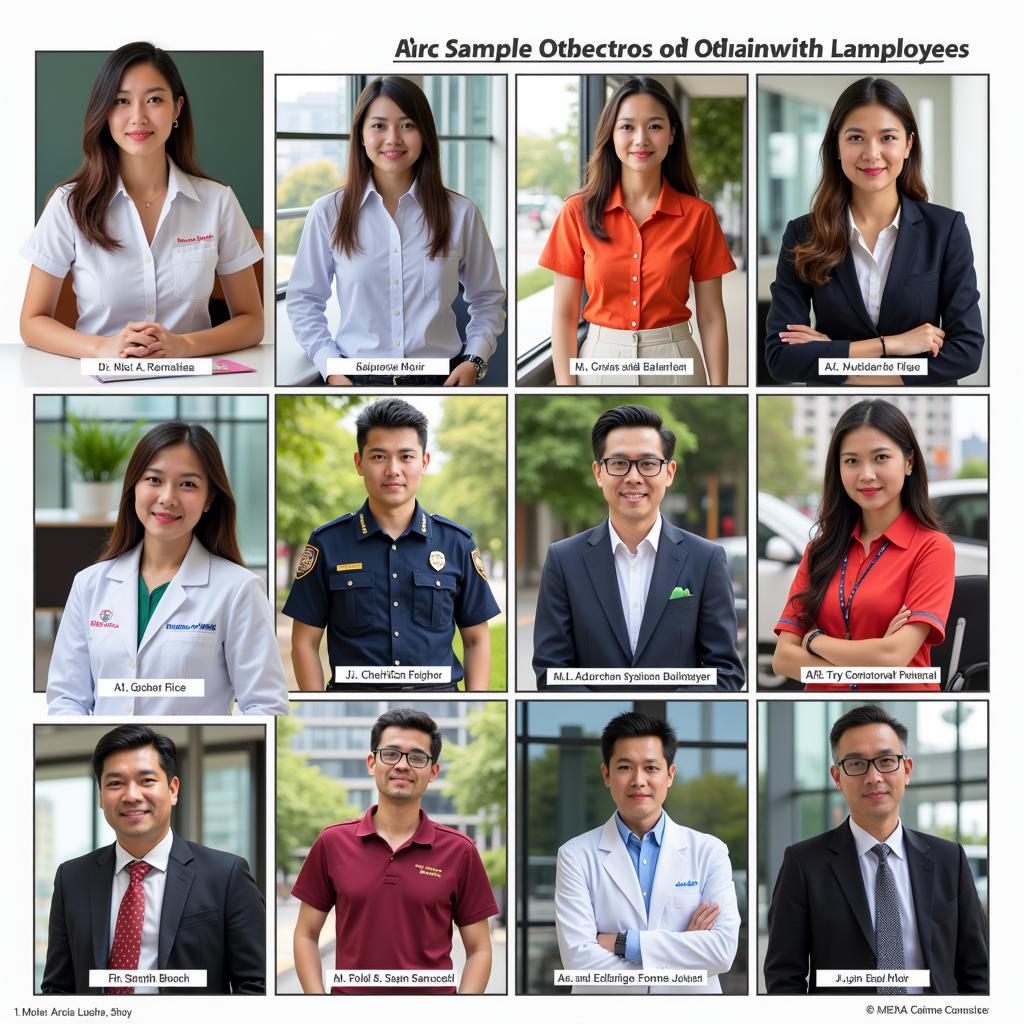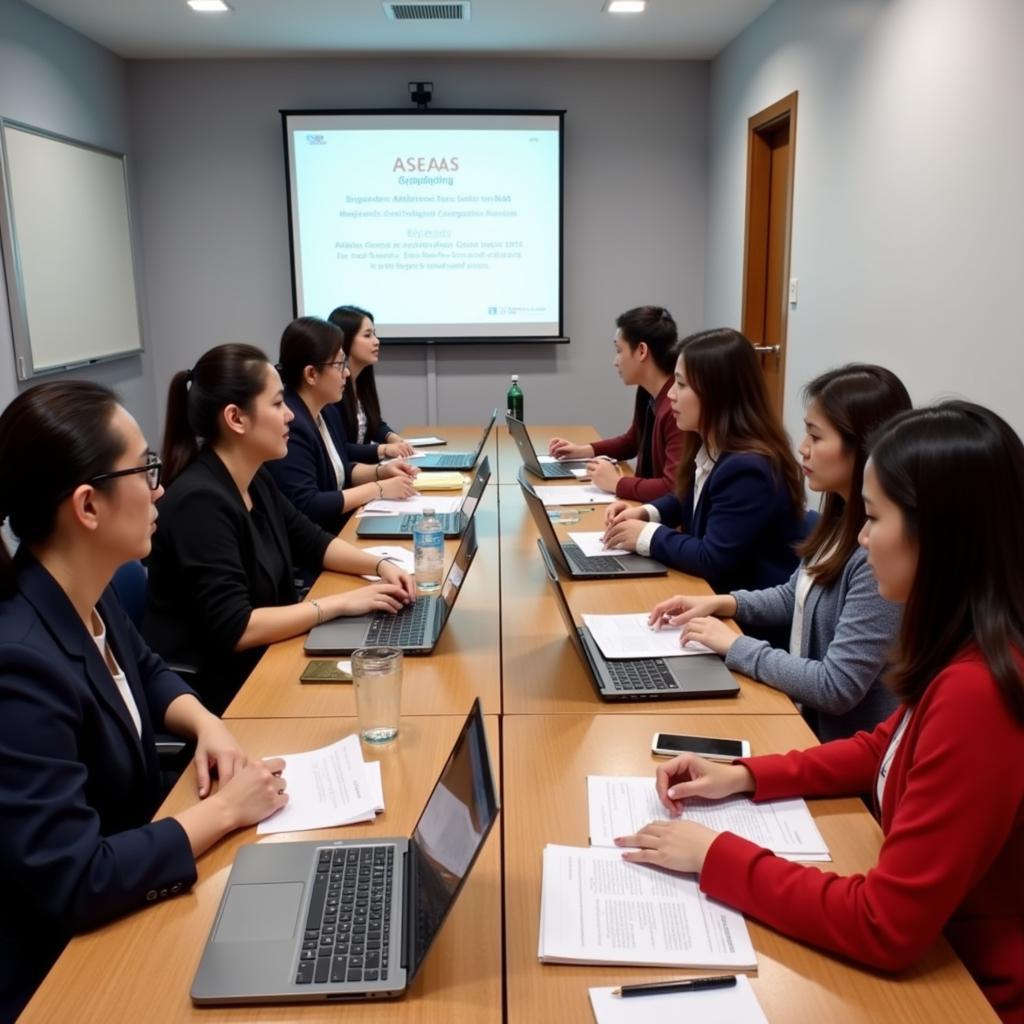The term “ASEAN state employees” encapsulates a diverse and vast workforce that forms the backbone of public service across the 10 member states of the Association of Southeast Asian Nations (ASEAN). These individuals play a crucial role in shaping their respective countries’ development trajectories and fostering regional cooperation within the ASEAN bloc. This comprehensive guide delves into the intricacies of being an ASEAN state employee, examining the challenges, opportunities, and unique characteristics that define this critical sector.
Understanding ASEAN State Employees: Roles and Responsibilities
ASEAN state employees encompass a wide range of professions, from civil servants in government ministries to public school teachers and healthcare workers. Their responsibilities are as diverse as the societies they serve, encompassing policy formulation and implementation, public service delivery, and upholding the rule of law.
 Diverse Workforce in ASEAN
Diverse Workforce in ASEAN
A key aspect of being an ASEAN state employee is navigating the complexities of a rapidly evolving region. With ASEAN’s growing economic and political influence, state employees are increasingly tasked with engaging in regional and international collaborations, demanding adaptability and a global outlook.
Challenges and Opportunities for ASEAN State Employees
Despite the significant contributions of ASEAN state employees, they often face numerous challenges, including:
- Resource constraints: Limited budgets and infrastructure can hinder effective service delivery, particularly in less developed member states.
- Bureaucracy: Complex administrative procedures and hierarchical structures can slow down decision-making processes and hinder innovation.
- Brain drain: The allure of higher salaries and better opportunities in the private sector or overseas can lead to a loss of skilled personnel.
However, alongside these challenges come numerous opportunities:
- Regional integration: The ASEAN Economic Community (AEC) blueprint offers state employees chances to participate in cross-border initiatives and gain exposure to best practices from other member states.
- Technological advancements: The rise of digital technologies presents opportunities to improve public service delivery, enhance transparency, and streamline bureaucratic processes.
- Capacity building: ASEAN actively invests in training and development programs to equip its state employees with the necessary skills and knowledge to navigate the evolving regional landscape.
 ASEAN State Employees in Regional Collaboration
ASEAN State Employees in Regional Collaboration
The Importance of Professional Development
Continuous learning and professional development are paramount for ASEAN state employees to thrive in a dynamic environment.
- ASEAN training programs: Numerous training programs focusing on areas like public policy, trade facilitation, and digital literacy are available through initiatives like the ASEAN Human Resource Development program.
- Educational scholarships: Scholarships offered by ASEAN dialogue partners, such as Australia and Japan, provide opportunities for state employees to pursue higher education and specialized training abroad.
- Networking opportunities: ASEAN events and workshops provide platforms for state employees to connect with peers, share experiences, and learn from experts in their respective fields.
[ase-training-dvd]
The Future of ASEAN State Employees
The future of ASEAN state employees is intertwined with the region’s overall development trajectory. As ASEAN strives to become a more integrated, resilient, and people-centered community, its state employees will play a pivotal role in translating regional aspirations into tangible outcomes. This requires continuous adaptation, innovation, and a steadfast commitment to serving the public good.
Frequently Asked Questions (FAQs)
1. What are the qualifications required to become an ASEAN state employee?
The specific qualifications vary depending on the position and country. Generally, a bachelor’s degree is the minimum requirement for entry-level positions, while advanced degrees may be required for specialized roles. Each ASEAN member state has its own civil service examination or recruitment process.
2. Are there opportunities for foreign nationals to work as ASEAN state employees?
Generally, state employee positions are reserved for citizens of the respective ASEAN member states. However, there might be exceptions for highly specialized roles or technical expertise not readily available within the country.
3. How does ASEAN promote gender equality within its state employee workforce?
ASEAN is committed to promoting gender equality and women’s empowerment across all sectors, including public service. Several initiatives aim to increase women’s participation in decision-making positions within the ASEAN state employee workforce.
[ase-technology-ir]
Need More Information?
Do you have more questions about ASEAN state employees or other aspects of Southeast Asia’s dynamic landscape? Explore our website for insightful articles and resources.
Contact us:
Phone Number: 0369020373
Email: [email protected]
Address: Thon Ngoc Lien, Hiep Hoa, Bac Giang, Vietnam.
Our dedicated customer support team is available 24/7 to assist you.


